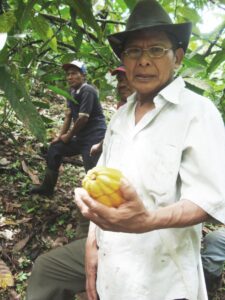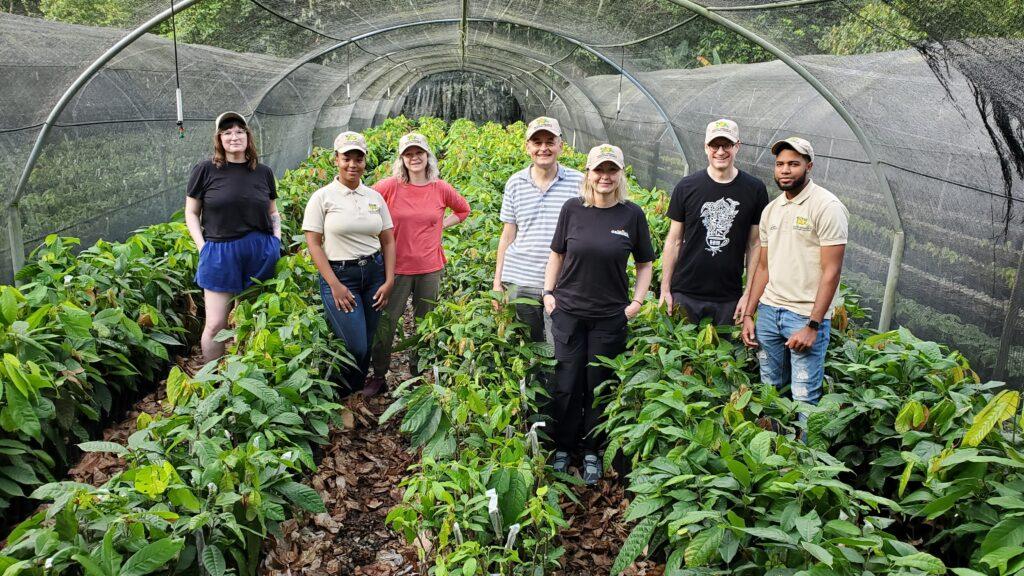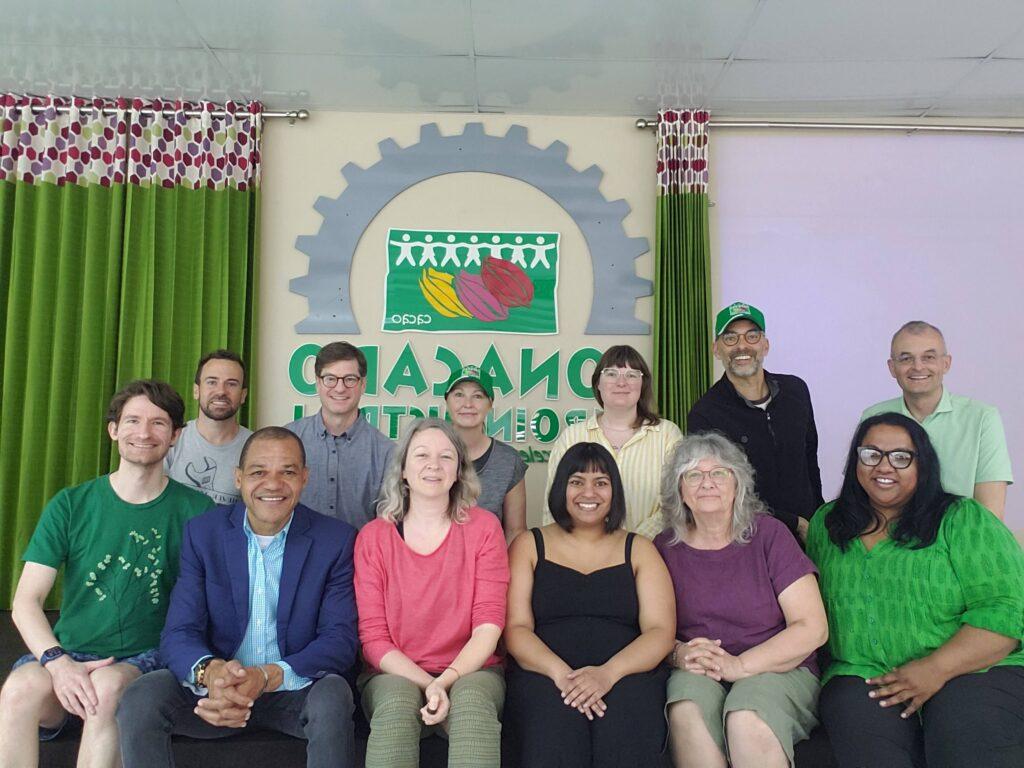 Organic farming in southern cacao producing regions almost happened by accident. Farmers could not afford the high costs of using chemical pesticides and fertilizers, so used what little they had sparingly.
Organic farming in southern cacao producing regions almost happened by accident. Farmers could not afford the high costs of using chemical pesticides and fertilizers, so used what little they had sparingly.
Organic cacao farming – why it matters to small-scale farmers and the environment
 Organic farming in southern cacao producing regions almost happened by accident. Farmers could not afford the high costs of using chemical pesticides and fertilizers, so used what little they had sparingly.
Organic farming in southern cacao producing regions almost happened by accident. Farmers could not afford the high costs of using chemical pesticides and fertilizers, so used what little they had sparingly.Today, organic farming has become a very deliberate and strategic practice. Farmers recognize the benefits of eliminating such harsh chemicals in favour of the bio-diversified methods of keeping pests away and earth fertilized. As a result, farmer family health and water is not compromised, and farm soil is enriched from natural composting.
We are asked this question often, so here it is: “Cacao” is the bean within the fruit of the cacao tree that is grown in beautiful, tropical conditions along the equator. The tree produces large football-shaped fruits, cacao pods, and cacao beans are found inside the pods.
To make “cocoa”, the beans are harvested, fermented and dried. They are then cleaned and roasted, then ground and separated into cocoa butter and cocoa mass, key ingredients in finished chocolate, and cocoa powder, the lovely powdered product we use to make hot chocolate or as a baking ingredient. So the key difference in using the terms is whether the cacao is in its original state of a cacao bean, or transformed into the typical retail product of cocoa.
The cacao tree naturally prefers the shade, which lends to a harmonious local ecosystem when thoughtfully cultivated by small-scale family farmers using organic production methods. Cacao trees are typically planted among fruit trees such as guava and mango, to provide benefits such as shade for the cacao tree, increased biodiversity on the farm, inhibited growth of weeds (reducing the need for chemical herbicides), and additional food and income for the farmer’s family.
The co-operative to which the farmer belongs invests resources (often from fair trade and organic premiums) in training and programs to ensure strong yields while preserving the local environment. Their holistic approach to farm maintenance includes teaching farmers how to make their own organic compost on the farm using discarded cacao pods, eliminating the use of man-made chemical pesticides and herbicides which would normally go into the local environment and water supply.
Many of our co-op partners in Peru, Panama and Dominican Republic have nurseries filled with cacao seedlings so that farmers are able to replace old trees, rather than cut down surrounding forests to expand their farms. The co-ops focus on incorporating other crops when planting these new cacao trees, improving overall farm diversification. These include a variety of crops for both shade and food, such as bananas, citrus, and tubers and roots.
Organic farming is not easy. It’s hard work, but the benefits for both farmer and consumer are tangible. So when you consider buying your next Camino fair trade and organic certified chocolate bar or baking product, please know that the little more that you pay at the cash register contributes to the health of your family, our family farmer partners and to saving our planet.
By Jennifer Alldred, with contribution from Kelsie Evans, Equal Exchange


